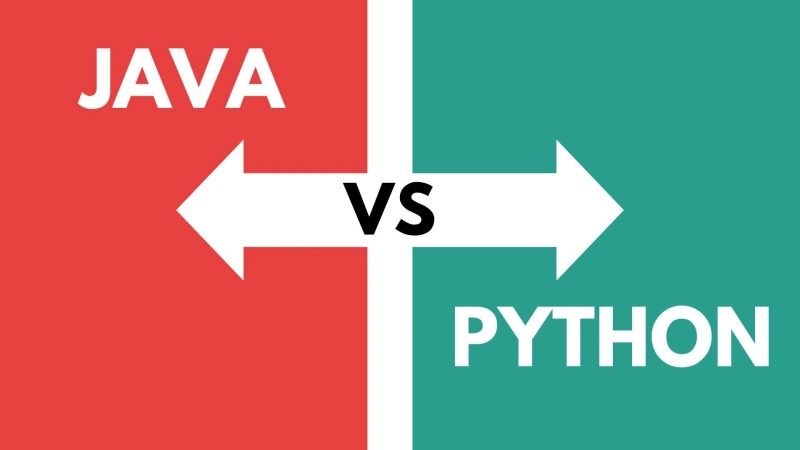Startups in 2026 are the fastest ever, creating scalable apps, AI-powered platforms, and automation-first solutions. The choice of programming language can determine the technological foundation of the startup. Of the most common choices, Python and Java easily become the two main players which support everything from fintech and healthtech through automation and AI to the end of the line.
However, if it is about making a choice between the two, which one would be the better language for startups in 2026? Let’s compare python development services and Java Development Services in terms of performance, scalability, cost, and then look at the emerging trends like Robotic Process Automation (RPA).
1. The 2026 Startup Landscape: Agility and Automation First
Startups today face immense pressure to innovate quickly while keeping development costs low. From building AI-driven customer support systems to deploying cloud-native microservices, agility is the new competitive edge.
Here, you will find the very best Python Development Services. Python's simplicity, extensive ecosystem, and quick prototyping capability allow startups to transition from an idea to an MVP (Minimum Viable Product) really fast. Nevertheless, Java Development Services don't lose their relevancy for companies that are focusing on scalability, performance and stability comparable to enterprise-grade.
2. Python Development Services: Flexibility and Fast Innovation
Python remains to be the primary language in the startup domain through its flexibility and lower development cost.
Advantages for Startups:
- Speedy development cycles: the readable syntax of Python along with its powerful libraries condenses the coding work tremendously.
- AI and data integration: By the year 2026, AI, machine learning, and data analysis would not just be technologies but rather the very essence of the product. Python is surely the best choice when it comes to intelligent product development as it is backed by such powerful frameworks as TensorFlow, PyTorch, and Pandas.
- Strong RPA support: Python is increasingly used in Robotic Process Automation to free up people from repetitive tasks, and its role is essential for automated workflows, data extraction, and system integrations. The major tools like UiPath, Blue Prism, and Automation Anywhere now support Python scripting for custom automation tasks.
Illustration of a Use Case:
A health care technology startup employs Python to speed up RPA bots that process insurance claims by enhancing the human-like understanding of documents through AI models; this is all done in a few weeks of development time.
3. Java Development Services: Reliability and Enterprise Power
Even though the use of Python is increasing, still Java keeps its position as a stronghold for startups which are planning for a long-term scale-up.
Startups are benefitting from it in many ways:
- Speed and scalability: The JIT (Just-In-Time) compilation along with the multi-threading power make Java a choice for the fastest systems and for the biggest SaaS (Software as a Service) platforms.
- Security-first approach: Java has security features incorporated into it which makes it a preferred choice over other languages for sectors like fintech, banking, and enterprise applications.
- Cross-platform stability: Java’s JVM (Java Virtual Machine) guarantees compatibility across different environments, hence it can be used for cloud-native or hybrid deployment models.
Use Case Example:
A fintech startup going for a secure digital payment solution goes for Java due to the reasons such as compliance, safe transactions, and performance while dealing with high load conditions.
4. Python vs Java for Robotic Process Automation
Automation will take the central role in business efficiency in 2026 and both languages will be the key players.
- Python in RPA: Always praised and acclaimed for the ease of integration and flexibility it provides. Python scripts can easily carry out the daily chores of computing, analyze data at the same moment, and connect with APIs—thereby providing startups with a low-cost option to improve productivity.
- Java in RPA: More appropriate for large enterprise-grade automations where the focus is on performance, reliability, and security. Java-based RPA frameworks can be very easily integrated with the legacy systems of big corporations.
RPA conclusion:
The start of the journey of a startup through RPA is often marked by the use of Python as it is the most agile and after that migrating to Java as their automation needs grow.
5. The Verdict: Which Language Wins for Startups in 2026?
The startup's size and requirements will influence the decision between Python Development Services and java development services.
- Choose Python if: Your project involves AI-driven applications, prototyping, or automation that require fast and flexible development.
- Choose Java if: Your aim is to grow to an enterprise level, you are working on a critical system, or you are relying on the long-term security and stability of your development.
In several instances, the most prospering startups of 2026 will be mixing the two technologies - making use of Python for innovation and Java for scale.
Conclusion
In the race for innovation, Python gives startups the speed, affordability, and intelligence to launch fast, while Java ensures stability, performance, and security as the business scales.
For startups embracing robotic process automation and AI-powered ecosystems, hybrid models powered by Python Development Services and Java Development Services represent the future agile today, scalable tomorrow.



